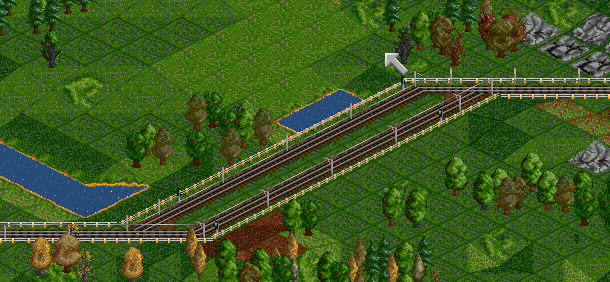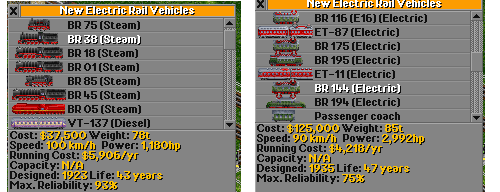Game Start
From #openttdcoop wiki
| Please see the current page at Game Start with Airplanes |
Game Start
When first beginning a new game, on a fresh map, there are a few VERY important things to remember.
- Cargo
- Distance
- Signals
- Terraforming
- Trains
Alternatively starting with airplanes instead of trains can be done.
Cargo
The first type of cargo that should be transported in a new game is coal. It has the best distance/earnings ratio of any cargo. That means, the farther you take it, the more you earn!
Distance
Find a power station near a corner of the map with preferably 2-4 mines within decent reach. Build a simple Ro-Ro station, 3 or 4 tracks is all that will be needed; connect this station to a coal mine about 100 tiles away (The normal COOP map is 256x1024, so about half the shorter length) with smart track laying you should be able to build the stations and track for around 150,000e. It also helps to use a single track line with passing areas for very distant connections, as seen here:
Signals
Our network rules state that there should be a signal every other tile. During a game start this is lunacy and a HUGE waste of money, most of the track you are building will be destroyed later in the game, and will have very few trains running on it to boot. A signal every 20 tiles is sufficient.
Terraforming
If at all possible, go around anything in your way, rather than moving it. 2x45 degree turns are not as bad in the game start as they are in our final network. Most trains in early game will not even slow down around a 2x45 degree curve! Bridges are cheap and tend to be faster than just laying tracks down a valley, if possible use a bridge!
Trains
You can go with either electric rail, or regular, but since the costs for erail are the same, you have to stick to electrified rail by default. The steam engines will have similar top speed, half the HP (only bad point) but cost about a third of an electric engine.


